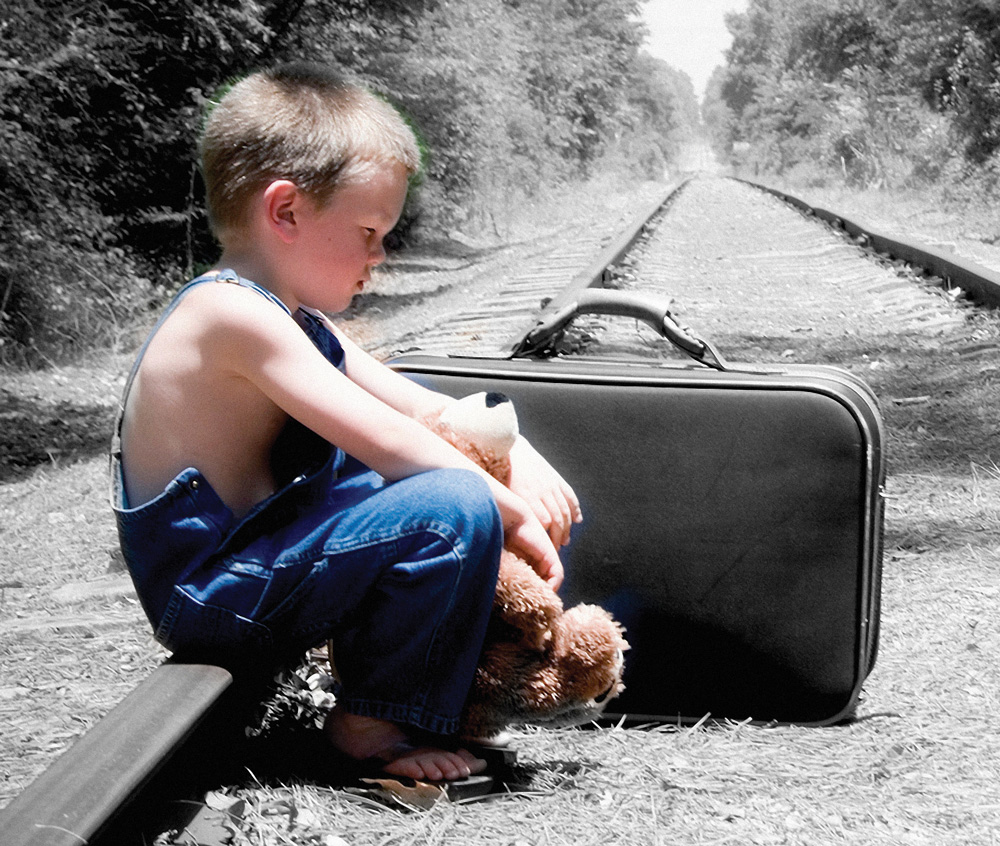Finding comfort in your identity as “orphan”
I am fatherless.
I never knew my great-grandfathers—though my middle name belonged to one of them. Only sparse tales give me in any insight into who they were.
My grandfathers both passed before I was in my mid-20s. I have fond memories, but they fade with time. Certain images of those men linger. I can see one of them walking to his barn after lunch on a steamy summer afternoon. I see the other standing beneath a porch light and rolling a cigarette as our family drives away.
Then, last summer, my dad succumbed to congestive heart failure. Dad’s life was marked by many downers—at least from my perspective. A host of ailments beset him from long before I twinkled in his eye and that shaped the man I loved. The older I grew the more I found myself wanting to talk with him. Maybe I was finally ready to hear what he had to say. Perhaps I simply began to appreciate the wisdom his simple and challenging life had bottled up. He never sold it and now after a year without him I am realizing I didn’t drink from the well often enough when it was free for the asking.
Now I am left behind. I am “it.”
It’s strangely unsettling to see no warm body above you in the line of who begat you. Sure, I have a cache of uncles, mentors and wise ones who still fill a void and inspire growth in me, but it’s not quite the same. I find enough “old” ones around to provide relief that I’m not next in line for the nursing home. Still, I am fatherless. I am without him. And, for my own children, it is me they alone can look to in the family line.
Is this what a patriarch feels like? If so, they must feel pretty dull. This inevitable position has been dropped in my lap prematurely. There remains plenty of pup in me. There surely is immaturity others notice. There is much left to be desired within that I am hesitant for others to know about. Then there is this unavoidable consideration: I too will fade from the memory of those I most care about. What, therefore, must I leave behind? Do patriarchs have mid-life crises?
Most of the studies of fatherlessness and its cancerous impact on males and their futures zeroes in on snotty-nosed boys—and who can argue? Any honest person cannot deny the disheartening and tragic truth that a young male without a father is set up for greater challenges and pitfalls. But what about older guys like me?
As a pastor I hear men reflect on life as they know it. They’re great guys. All of them do amazing things and many are too hard on themselves. They are diversely talented, well-intentioned and salted with a healthy dose of boyish appreciation for flatulence.
Some are still seeking freedom from habits and dark places they don’t like as the Holy Spirit has given them a taste for something better. Most work hard and all of them love their families. None of them plan to be dysfunctional. Several are go-to guys for others, leaders, men you want your own son to emulate. And, inevitably, many feel somewhat fatherless—even if their dad still breathes the same air.
Men who have—or have had—Christcentred fathers are more likely to have less of an ache here, but having a Dad who loves Jesus is no guarantee of escape from that fatherless ache. I am struck by this pattern. No man—no matter how worthy of those superlative eulogies—can really fill that orphan space we know is there, but rarely peek into.
Then I note that Jesus lived most of His life fatherless. Joseph exits stage left pretty early on and Jesus is “it.” We can argue that He still had His “real” Father—it’s not like the Godhead disintegrated—but then we discover even Jesus felt abandoned by the Father at His moment of greatest need.
“Why have you forsaken me?” The cry of the fatherless.
This comforts me. It gives me permission to feel and name the ache. It relieves the pressure to be the perfect patriarch and just be an honest one. And, it gives the orphan in me a voice. There is One I can cry to. He will never abandon the fatherless and it is His voice I must tune the ears of my own children to for that day when they know this strange fatherless ache.
About


